
@’s by DIG COMICS’ Miguel Cima!!!
 Hello out there in comic book land! It is I, superhero! Back in September of 2009 I reviewed an excellent documentary short by the name of DIG COMICS. If you want to check out that review click here. For more info on the film itself go here.
Hello out there in comic book land! It is I, superhero! Back in September of 2009 I reviewed an excellent documentary short by the name of DIG COMICS. If you want to check out that review click here. For more info on the film itself go here.Since that interview I’ve kept abreast of what the creator of DIG COMICS, Miguel Cima, has been up to. See, for years Mr. Cima has been on a one man crusade to save the art form that is comic books. I know, many of you may be thinking that comics don’t need saving and that the art form is in the best place it has ever been. You might think that because million dollar movies are being made out of comic properties that comic books are being read by every man, woman, and child on the planet. Well, the truth of the matter is that you’d be wrong.
Comic readership is actually stagnant in the U.S. Comic shops are struggling to keep their doors open and the general populace of the country that birthed the comic book just about ignores the art form altogether. While the movies based on characters created in comics make outstanding profits the actual comic industry makes but a small fraction of what the films that use them as inspiration make.
It’s because of this that Miguel Cima is now making the attempt to develop a full feature based on his original short film. But he’s going to need your help. Mr. Cima has taken his project to Kickstarter and he’s getting fired up to get the word out to the rest of America and the world that comics are a legitimate form of art to be taken seriously.
If you are a comic book fan, or if you’ve ever been a comic book fan, and you think that not enough people are consuming comics then consider contributing to the DIG COMICS Kickstarter campaign by clicking here.
And if you still need convincing after checking out that link then feel free to read this interview I did with Miguel Cima where he makes the case for DIG COMICS better than I ever could. Enjoy!
SUPERHERO: So for those not in the know…what is DIG COMICS?
MIGUEL CIMA (MC): DIG COMICS is my one-man mission to get America to fall in love with the homegrown art form of the comic book. We are living in weird times when the entire North American comics industry can get its ass kicked in profits by a single Batman movie. Not only that, but at a time where the medium is exploding with genres, most folks STILL think that comics are a superheroes only affair. The full potential of the medium has waned for a hell of a lot of reasons, bleeding readership in the process, and I intend to turn that around so that all of our Picassos and Van Goughs do not go on unnoticed.
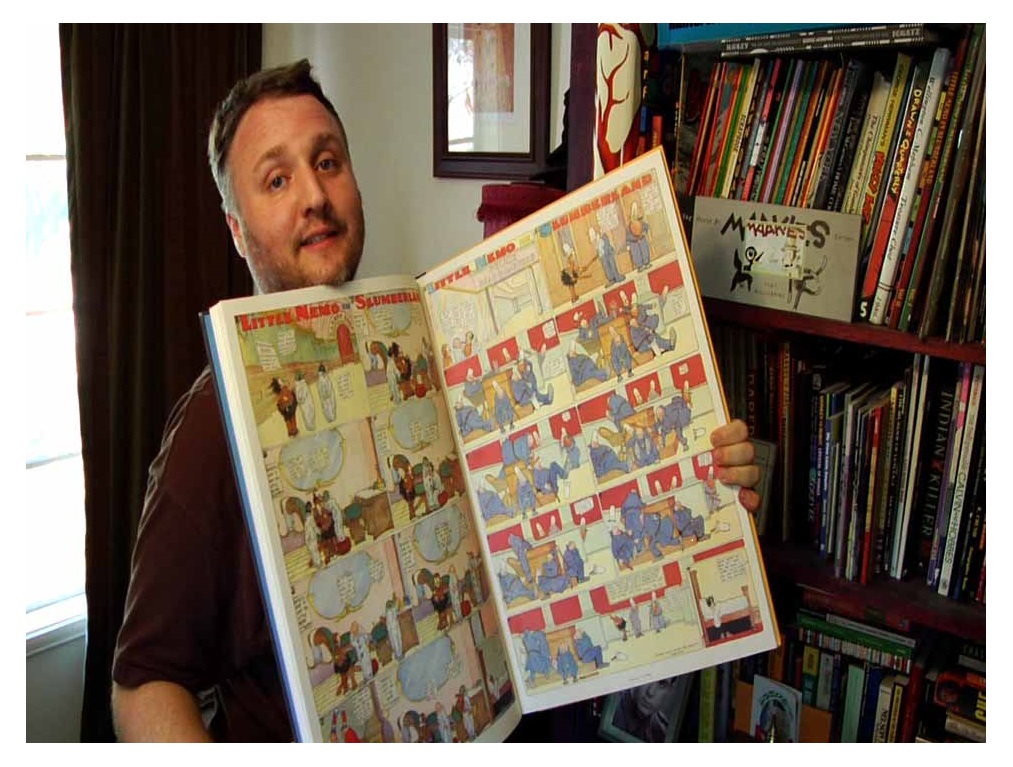 SUPERHERO: How did you get into comics?
SUPERHERO: How did you get into comics?MC: When I was kid, I would see cartoons or superhero shows on TV, then later at a newsstand with my dad or at the supermarket with my mom, lo and behold, there would be comics of my favorite characters. The habit started at a young age, and after a brief death in my teens, was resuscitated when I discovered so-called “alternative” comics, which allowed me to discover more and more incredible works.
SUPERHERO: Do you remember what your first comic was?
MC: Probably Tarzan, published by DC. Or maybe Anteojito, an Argentine humor comic my dad would pick up for me at the bakeries in Queens. Never got too into that stuff, it definitely started in English, with heroes.
SUPERHERO: What do you think the comic companies are doing to help your cause?
MC: I guess the push towards digital is a good step. But let’s face it, one thing they really need to do is spend money to create awareness, increase distribution and lower prices. Personally, I don’t see why they don’t spend some of the movie money made to get more of this sort of thing done. It’s a win-win because more comics readers means more movie goers and vice vesra. I mean I got that Tarzan comic because I was watching the Johnny Weissmuller movies on TV. I’m sure a kid will do the same with Iron Man if you invest in placing the product somewhere kids frequent, like the grocery store, Target or even libraries.
SUPERHERO: How do you see digital/webcomics playing into your crusade? Are the ipad and tablet PCs game changers?
MC: It’s funny, because obviously, they have to be, right? And yet one business model you often see is that once you get a readership going on line, you then publish the book because you know you have an audience. But then you have the reverse engineering which Marvel is doing by putting up material already published up there – which I think is great. Ultimately, it’s going to be a kid’s game. Kids will decide which way this all goes. Hopefully it will be a fair contest, where equal access is provided for all formats, but again, alas…
SUPERHERO: But I sort of see the “Digital Revolution” as a bit short sighted in a way. It’s based on the assumption that everyone has access to a computer. Or that reading on a computer or tablet is sustainable in a raw material sort of sense. Sure, there’s less paper to be used and more trees can possibly be saved…but is there enough raw material to get a digital reader in everyone’s hands in the future? Part of the reason that comics took hold in the early part of the 20th century is because they were cheap enough for everyone who wanted one and they were everywhere. It seems to me that with a move to digital you’re removing that equation a bit…because there’s still a chunk of the population that doesn’t have a broadband connection believe it or not. Or poor kids who don’t have any access to a computer. Or what if the internet gets restricted in some way? Any thoughts on that?
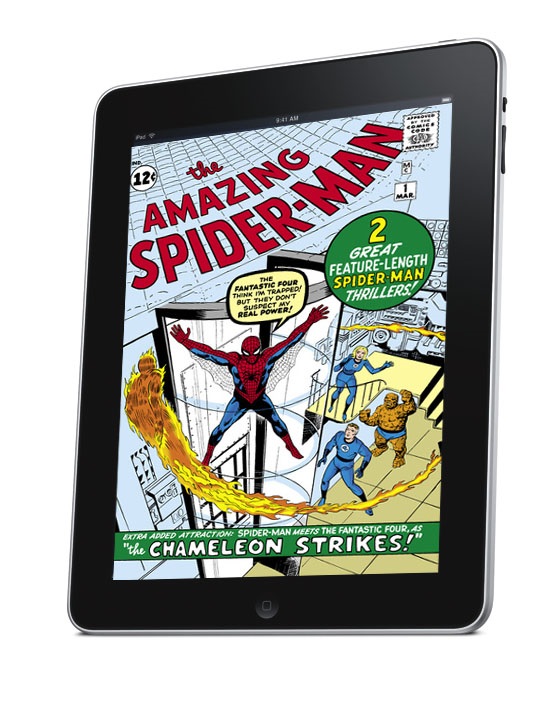 MC: Those are great points, but I think in the long run, computers and broadband will be like phones – everybody will have one. TV’s were a luxury in 1950, now the only people who don’t have one are folks who take pride in refusing to watch! And short of state censorship, how can anybody restrict the internet? It’s such an engine for commerce, I mean our society would have to be extremely strained or altered for China-style regimes to be in place. Of course, if we lose net neutrality, it might start costing more, but Marvel and DC at least would be in a position to pay those tolls. But your question on the economics of the situation is the bigee. I used to work in the music business, as it began its death throes, and what I saw there in the halls of one of the biggest major labels was plain: they were putting out shitty product and charging way too much for CD’s. Everybody was blaming pirating and digital downloads, but those overpaid fucks had the gall to make retail for a new record $18.99 – you can get a DVD movie for less. In the meantime, every new act they broke was the same old formula of following a trend and if it didn’t break with mondo sales, no second chances. Artist development became a thing of the past. Neil Young and The White Stripes would have had no chance in this atmosphere.
MC: Those are great points, but I think in the long run, computers and broadband will be like phones – everybody will have one. TV’s were a luxury in 1950, now the only people who don’t have one are folks who take pride in refusing to watch! And short of state censorship, how can anybody restrict the internet? It’s such an engine for commerce, I mean our society would have to be extremely strained or altered for China-style regimes to be in place. Of course, if we lose net neutrality, it might start costing more, but Marvel and DC at least would be in a position to pay those tolls. But your question on the economics of the situation is the bigee. I used to work in the music business, as it began its death throes, and what I saw there in the halls of one of the biggest major labels was plain: they were putting out shitty product and charging way too much for CD’s. Everybody was blaming pirating and digital downloads, but those overpaid fucks had the gall to make retail for a new record $18.99 – you can get a DVD movie for less. In the meantime, every new act they broke was the same old formula of following a trend and if it didn’t break with mondo sales, no second chances. Artist development became a thing of the past. Neil Young and The White Stripes would have had no chance in this atmosphere. The comics industry can learn from this. Find a way to keep prices down, digital or otherwise. And start taking chances on newer, more innovative artists and writers. The main driver in the legacy titles are all these events, crossovers and forced rehashes. Where’s the excitement there? So whether the product is on paper or on a screen, you’ll be facing those same issues. The final verdict will be a visceral one: will the kids want to flip pages or hit the enter key? That’s a tactile thing, it’s an eyeball thing, it’s based on how those things make you feel. That’s the core. And since iTabs and Kindle and everything else are all in their infancy, we’ll just have to wait and see. But my guess is that in 10 years, these devices and internet access in general will be fairly ubiquitous. My fear is that delivery of actual comics may not even have the chance to compete. Since digital is cheaper to produce and deliver, there’s where the publishers will prefer to take their risks. That’s where you are seeing the strongest push to find new audience.
SUPERHERO: What are comic book companies doing to hurt themselves?
MC: There’s a lot of monolithic business models out there that can restrict what type of audience you might get. I mean, I doubt Paramount or Universal would be as big as they are if they did only dramas or only comedies. The lack of diversification can keep readership stagnant. I also think there’s a basic lack of faith in the medium. Everybody is trying to monetize with licensing toys and movies – which is great – but the market for the root product itself is not as well nurtured. I wish I could see a huge attitude shift in that regard, I wish I could make some of these folks understand they are the torch bearers of a unique art form and not just widget makers.
SUPERHERO: What do you think of the price increases for pamphlet comic books?
MC: Sure doesn’t help things. I mean, if I was 8 years old and had to shell out $20 for five comics, I might just take that money (if I could even scrounge it up) and buy a PS3 Greatest Hits copy of Spider-Man or something, you know? I wouldn’t blame the kids. Of course, price needs to come down, and of course the answer is to increase readership so you can boost ad revenue and lower the cover price, but alas…
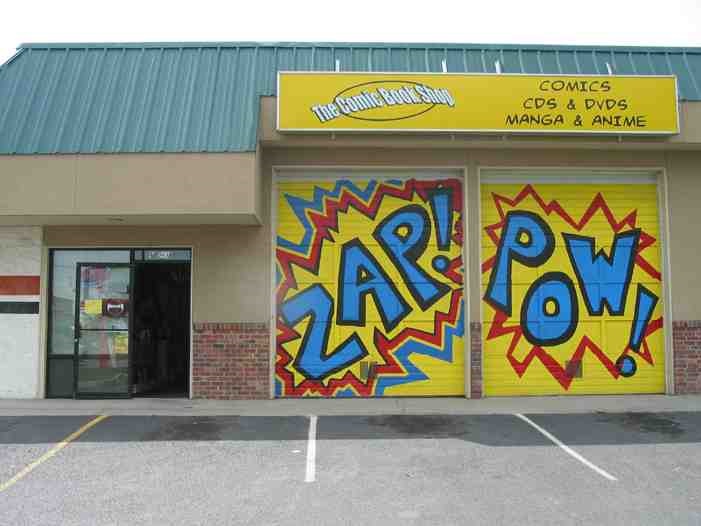 SUPERHERO: Do you think it’s even really possible to lower the price of a printed pamphlet at this point? When comics first came out they were printed and reproduced on cheap paper with subpar production techniques…which helped keep the costs down. But anytime you mention going back to newsprint the big two are against it. I think that it’s the upscaling, or attempt of glamorizing of comics that may have hurt the industry in an odd sort of way. What do you think?
SUPERHERO: Do you think it’s even really possible to lower the price of a printed pamphlet at this point? When comics first came out they were printed and reproduced on cheap paper with subpar production techniques…which helped keep the costs down. But anytime you mention going back to newsprint the big two are against it. I think that it’s the upscaling, or attempt of glamorizing of comics that may have hurt the industry in an odd sort of way. What do you think?MC: Again, it’s like the big label mentality. There’s egos and backroom deals and nobody wants to be the guy to take a chance. I for one find the older cheaper printing to be far warmer than the slick glossies that own the day. It’s a good thought and shit, if I ever get my dream comic company going, I might even try it! But here’s how you keep your costs down for real: ad revenue. And in order to increase those streams, you need MORE READERS. I cannot fucking say it enough. If I were the big two, that’s what I would be doing. Looking at a long-range plan where I would expect a loss for a while, but with gains in the end. I mean., if the average comic sold 50,000 copies instead of 12,000, you could triple your ad revenue and save the customer some moolah. But these companies are part of corporate giants. They hate uncertainty. They hate risk. The bottom line is everything. And they don’t really give a shit about readership because they have toys and video games and movies. The legacies have done their job. Unless some revolution occurs at the executive level, comics are either going to die a slow and painful death, or will be saved from below by new companies. All I can do is try and get some of these people of influence to listen to me. I think there’s still a huge chance for success to be had.
SUPERHERO: What do you think the future of printed comics will be?
MC: That’s a tough call. I like to think that there’s nothing quite like holding a comic or book in your hand, but then, folks seem to be doing fine without holding albums and CD’s in their hands. But I have an experiment or two in mind for the feature version of DIG COMICS in the works which may help answer this so stay tuned…
SUPERHERO: What do you see as the future for comic book shops? Can they survive?
MC: Yes, but they need to make themselves more valuable. I think part of the reason that most record stores went out of business is because so many were devoid of knowledgeable sales staffs, diversity and good prices. Retailers need to step up on the service side, cater to more than the usual audience, and provide discounts and sales (which most do for regular buyers anyway). And these have to be fun places. When a retailer doesn’t give a shit about his/her store, it shows, and the place is a bummer to be in. With such colorful products abound, it can’t be that hard to make a place appealing.
SUPERHERO: But don’t you think that there’s a danger of comic shops just being swallowed by large book retailers…which is what has happened to a lot of mom and pop businesses over the years? Succumbing to Wal-Mart and such. You don’t see the comic shop business model as a lost fight? Do you think that by advocating that comics be sold in more places (like Target, etc.) that it may hurt a local comic book retailer?
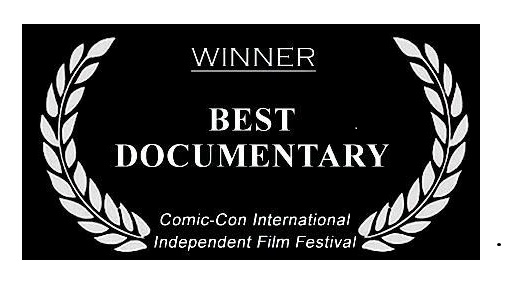 MC: No way! Check it out. Collectors will always go to comic shops. They just gotta. The habit requires an awful lot of variety of titles, and these types of stores simply don’t have the capacity, the care or the knowledge. It’s like when I was a kid. My first 1000 comics were purchased at grocery stores, drug stores, 7-11’s and so forth. And it was a real pain in the ass. What happened if they sold out of Spider-Man #203 and I had #202 and #204 and together they were a three-part story? I was fucked! Until I discovered the comic shop. There, all holes could be filled. Target and Wal-Mart, much as I hate them, can serve the same purpose, to get kids started. Now, not every one of them will become fanatics. But enough will to keep the culture alive, as was in the past. The bigger threat I see comes from Amazon. They can undersell everybody and they have everything. Plus their algorithms are accurate to a creepy degree. I have discovered a shitload of stuff based on their recommendations. And now that’s how people shop for music, right? Record stores have been decimated. There is an important difference, however. When you check out music online before you buy it, the delivery system is almost identical. That is, you can hear music through a speaker, almost the same experience as when you pop in a CD. Shopping for comics on line doesn’t quite translate as well. Nothing compares to holding one in your hand and giving it the old smell test before you buy it. But as I said, this is a visceral question. I love flipping pages. A lot of folks may prefer the “Look inside” function of Amazon. Of course, they won’t ever show you more than the first few pages, so who knows? That could be all the difference.
MC: No way! Check it out. Collectors will always go to comic shops. They just gotta. The habit requires an awful lot of variety of titles, and these types of stores simply don’t have the capacity, the care or the knowledge. It’s like when I was a kid. My first 1000 comics were purchased at grocery stores, drug stores, 7-11’s and so forth. And it was a real pain in the ass. What happened if they sold out of Spider-Man #203 and I had #202 and #204 and together they were a three-part story? I was fucked! Until I discovered the comic shop. There, all holes could be filled. Target and Wal-Mart, much as I hate them, can serve the same purpose, to get kids started. Now, not every one of them will become fanatics. But enough will to keep the culture alive, as was in the past. The bigger threat I see comes from Amazon. They can undersell everybody and they have everything. Plus their algorithms are accurate to a creepy degree. I have discovered a shitload of stuff based on their recommendations. And now that’s how people shop for music, right? Record stores have been decimated. There is an important difference, however. When you check out music online before you buy it, the delivery system is almost identical. That is, you can hear music through a speaker, almost the same experience as when you pop in a CD. Shopping for comics on line doesn’t quite translate as well. Nothing compares to holding one in your hand and giving it the old smell test before you buy it. But as I said, this is a visceral question. I love flipping pages. A lot of folks may prefer the “Look inside” function of Amazon. Of course, they won’t ever show you more than the first few pages, so who knows? That could be all the difference.SUPERHERO: What role do you see for foreign comic book companies playing in the future comics market. Such as Manga or the European comic books?
MC: Essential. The Manga market is already a huge hit with kids, and if the European style stuff can break through I foresee a very lucrative adult market growing. War comics, lusty thrillers, weird humor, historical adventures – you see a lot of this sort of stuff overseas, yet lacking in the big publishers here at home. So, yeah, in terms of new audience, this would help tremendously.
SUPERHERO: What do you think it is about American audiences that seem to make them so resistant to embracing comic books in general? Or do you agree with that statement at all?
MC: Oh well, that’s easy. America has demonized the art form. That’s really it. It was fucking McCarthyism. The 1954 Senate hearings on comics and their “findings” that comics were harmful to children resonated through that crazy paranoid era to this day. Comics are for dummies, perverts and criminals – that was the message. It’s a symptom of our culture to take fear and turn it into misdirected blame and punishment, an unfortunate hangover from the puritanical roots deep in the national psyche. That resonance is finally starting to shake off, thanks in large part to the success of the comics-based movies, but the big publishers don’t know how to fill the void in the marketplace, or worse, they are too scared to take a chance on building that back up.
SUPERHERO: What are your plans for the documentary as far as expanding on what you already have done?
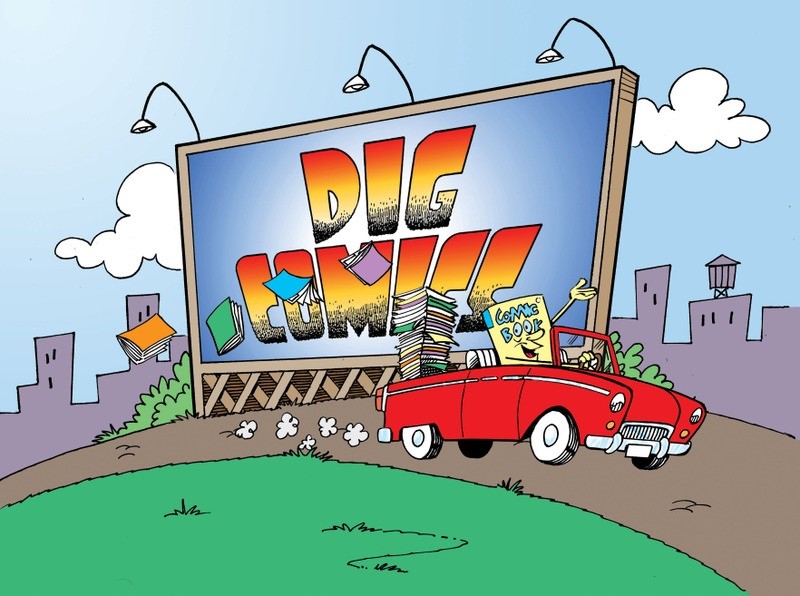 MC: We’ve been trying to develop Dig Comics as a TV show for a while now, gotten very close on more than one occasion, but always find ourselves facing the same issue: market research says shows about comics don't sell. That's wrong. There's an audience for this, and we can build out from the core fans. The trouble is that there's never been the RIGHT show about comics. But producers don't get that. So we're headed to Kickstarter to fund an expanded feature film version of Dig Comics. This will not only get us the resources we need to create an impactful, sellable piece, it's going to prove to the powers that be that we DO have an audience, and that they need to jump on board and tap that audience. Once that happens, the floodgates will open. We will attract non-comics fans by offering up entertaining content that educates them on what they've been missing. From there, interest in comic books will grow along with the American readership in general. And that's the final goal. I won't rest until I see comics sales go up and see names like Kirby, Eisner and Los Bros. Hernandez become as well known as Spielberg, Warhol and Lady Gaga. Only then will my job be done.
MC: We’ve been trying to develop Dig Comics as a TV show for a while now, gotten very close on more than one occasion, but always find ourselves facing the same issue: market research says shows about comics don't sell. That's wrong. There's an audience for this, and we can build out from the core fans. The trouble is that there's never been the RIGHT show about comics. But producers don't get that. So we're headed to Kickstarter to fund an expanded feature film version of Dig Comics. This will not only get us the resources we need to create an impactful, sellable piece, it's going to prove to the powers that be that we DO have an audience, and that they need to jump on board and tap that audience. Once that happens, the floodgates will open. We will attract non-comics fans by offering up entertaining content that educates them on what they've been missing. From there, interest in comic books will grow along with the American readership in general. And that's the final goal. I won't rest until I see comics sales go up and see names like Kirby, Eisner and Los Bros. Hernandez become as well known as Spielberg, Warhol and Lady Gaga. Only then will my job be done. SUPERHERO: Have you seen any of the other comic documentaries? How do you think yours will differ from theirs?
MC: Yes! I mean, back in the day was COMIC BOOK CONFIDENTIAL. That was a big deal because it was among the first to show off that late 80’s/early 90’s “revolution” that was happening (and later died along with Superman – who unlike the comic book audience, mysteriously came back to life). It’s a real classic, everybody needs to check it out. A more recent film I highly recommend is INDEPENDENTS by Chris Brandt. An excellent film that takes you by the hand around the world of the indy scene. If you aren’t into indy comics and are ready to give them a try, this film is a terrific primer. And it’s just really cool, no matter what you’re into. Chris has also become a friend and is actually now helping produce DIG COMICS! My cousin also sent me a copy of IMAGINADORES, a film about the history of Argentine comics – something I know nothing about, despite it being the land of my birth. Directed by Daniela Fiore. It’s another great film to watch, and the production value is astounding – very slick. It’s got subtitles, and man, there are some great artists down in Argentina. Next time I go, I’m gonna buy a ton of that shit. As for how DIG COMICS will differ, that’s easy. I am not making a documentary. I only call it that out of convenience. I am making a pure propaganda piece. I am not going to be objective, I am taking a side. I am on a mission and the best way to turn heads and educate people is through the sheer trickery of entertainment. Fellini said that cinema is an old whore, like the theater and the circus. Well, that’s exactly what I am doing. I am peddling my ass to find new John’s for comics. Yes, it will be fun, yes, you will have a good time, and yes, I hope to god you catch something – but not a disease! Instead, my hope is that DIG COMICS will cause you to be graced by the divine experience this unique medium has to offer. If I can trick you into making your life better by so casual a discovery as comic books, I will have done my job.
SUPERHERO: Can you talk about some of the names/celebrities that have been involved in the project? Some of the people who've tried to help you push this project forward?
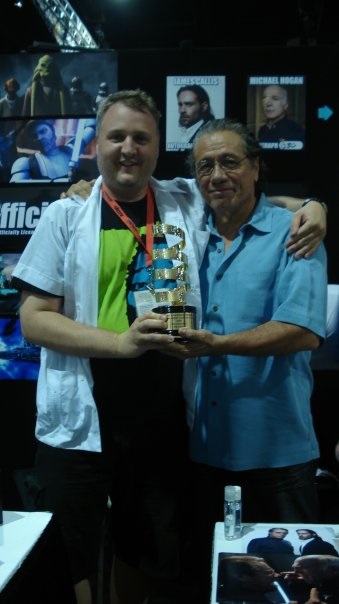 MC: We've been very fortunate in that we've gotten the attention of some very awesome people and had them join us on our journey and help open up some doors. Just before we won the award, it was Edward James Olmos and his production company, fueled largely by his passion for anything that furthers education and his son's love of comics. Later on, we had Dark Horse expressing an interest in our work. Most recently, folks from the Uslan Company, producers of every Batman movie from Michael Keaton to Christian Bale, have grown really close to the project and shown us a great deal of kindness. These are people who care about comics A LOT. The fact that such busy, important folks have given as much of their time and energy means a great deal, but it humbles and honors me that it's people who GET comics, whose entire lives and career paths were BUILT around comics. That they believe in my project offers not only legitimacy to me, but also reinforces in my heart and mind that what I am doing really isn't about me, but about something so much bigger - the championing of an art form, an important art form, which like all art, has the power to transform human consciousness. That's a big deal and these people who have been encouraging me understand that. I would be remiss not to add perhaps the most important friend to the project - and really, a guy who has become a close personal friend - and that's Scott Shaw! While Scott is obviously not as well-known as the other guys I name, he was the first professional cartoonist who really believed in Dig Comics, and has been one of its biggest boosters. Nobody I know knows comics like Scott. His faith in me and my work has really kept me going over the years and given me the confidence that what we are trying to do is righteous.
MC: We've been very fortunate in that we've gotten the attention of some very awesome people and had them join us on our journey and help open up some doors. Just before we won the award, it was Edward James Olmos and his production company, fueled largely by his passion for anything that furthers education and his son's love of comics. Later on, we had Dark Horse expressing an interest in our work. Most recently, folks from the Uslan Company, producers of every Batman movie from Michael Keaton to Christian Bale, have grown really close to the project and shown us a great deal of kindness. These are people who care about comics A LOT. The fact that such busy, important folks have given as much of their time and energy means a great deal, but it humbles and honors me that it's people who GET comics, whose entire lives and career paths were BUILT around comics. That they believe in my project offers not only legitimacy to me, but also reinforces in my heart and mind that what I am doing really isn't about me, but about something so much bigger - the championing of an art form, an important art form, which like all art, has the power to transform human consciousness. That's a big deal and these people who have been encouraging me understand that. I would be remiss not to add perhaps the most important friend to the project - and really, a guy who has become a close personal friend - and that's Scott Shaw! While Scott is obviously not as well-known as the other guys I name, he was the first professional cartoonist who really believed in Dig Comics, and has been one of its biggest boosters. Nobody I know knows comics like Scott. His faith in me and my work has really kept me going over the years and given me the confidence that what we are trying to do is righteous. SUPERHERO: How did you get Scott Shaw! to sign up?
MC: We met in jail after…oh no wait, I can’t tell it that way. OK. So it’s 2006 and I want to make this movie. And I’m moping around the San Diego Con, trying to get artists and pros to be in my movie. I stop by the Sergio Aragones booth in an attempt to make contact with Mark Evanier, who I knew was something of a comics expert. Neither of those guys were around but the guy manning the booth pointed one booth down and said, “That’s the guy you really want to talk to.” Now I knew Scott’s work from Captain Carrot, but I wasn’t well versed in his career yet. So I talked to him as he was sketching a drawing – he never looked up – and he said, “Yeah, sure, I’ll be in your movie.” A year later, we interviewed him at his house. His whole family was there and they just welcomed me with open arms, just great people. Scott started showing off all this great original art to me, my jaw hanging open, and said, “Hey we should hang out some time.” Well now we’re best pals. I love the fucking guy. My gal loves him. Our cats and dogs love him. He’s the coolest fucking guy and I am more grateful that he is my friend than for all the incredible help he has given me. And I don’t know what Evanier knows, but Scott knows more about fucking comics than anybody ever. It’s insane!
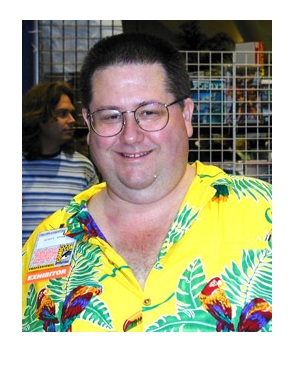 SUPERHERO: What do you hope the future holds for DIG COMICS?
SUPERHERO: What do you hope the future holds for DIG COMICS? MC: Beyond a feature and TV show, I really want to create a community online, a place where comics fans can share their wisdom and non-comics fans can find some guidance towards this new world before them. It needs to be a place of discovery for everybody, fun and interactive, part news site, part review site, part a lot of things. I especially want to set up an easy platform for people to discover comics they never knew existed. I have a VERY rough prototype set up on my website (which is totally bare bones right now). If you go to www.digcomics.com and click on "Cool Comics" you can get the idea. Again, it's rough, and it would take a lot of resources to get it where I want it: a vast collection of images and short blurbs, indexed by genres, artists, category, etc., hopefully evolving into community-supported content, where we can have anyone contribute, Wiki style. But man, we will need a LOT more time and money to get there. Plus it'll only make sense once people are aware of the project in a big way. So, baby steps...
SUPERHERO: Why do you think you can save comic books?
MC: I don’t know. Because I am Argentinean and we all have huge egos? Because I am a New Yorker and we all have big mouths? Because I just fucking care so fucking much about comics and it just pisses me off so fucking much that it gets treated like the fucking red-headed stepchild of 20th century art forms – unlike film, TV or recorded music – that I just can’t let this injustice go? I guess I’m ready to fight for the long haul to win for comics, and for the wonderful creators who make them for us, the respect they deserve.
SUPERHERO: With a little under a month left, please help out the DIG COMICS Kickstarter by going here!
Discovered as a babe in an abandoned comic book storage box and bitten by a radioactive comic fan when he was a teenager, superhero is actually not-so mild mannered sometime designer & cartoonist, Kristian Horn of Los Angeles, California. Some of his work can be seen at www.kristianhorn.com and check out his blog at www.parttimefanboy.com. You can check also out his webcomics at www.babybadass.com and thediplomatics.com, which is currently in development.
Proofs, co-edits & common sense provided by Sleazy G
